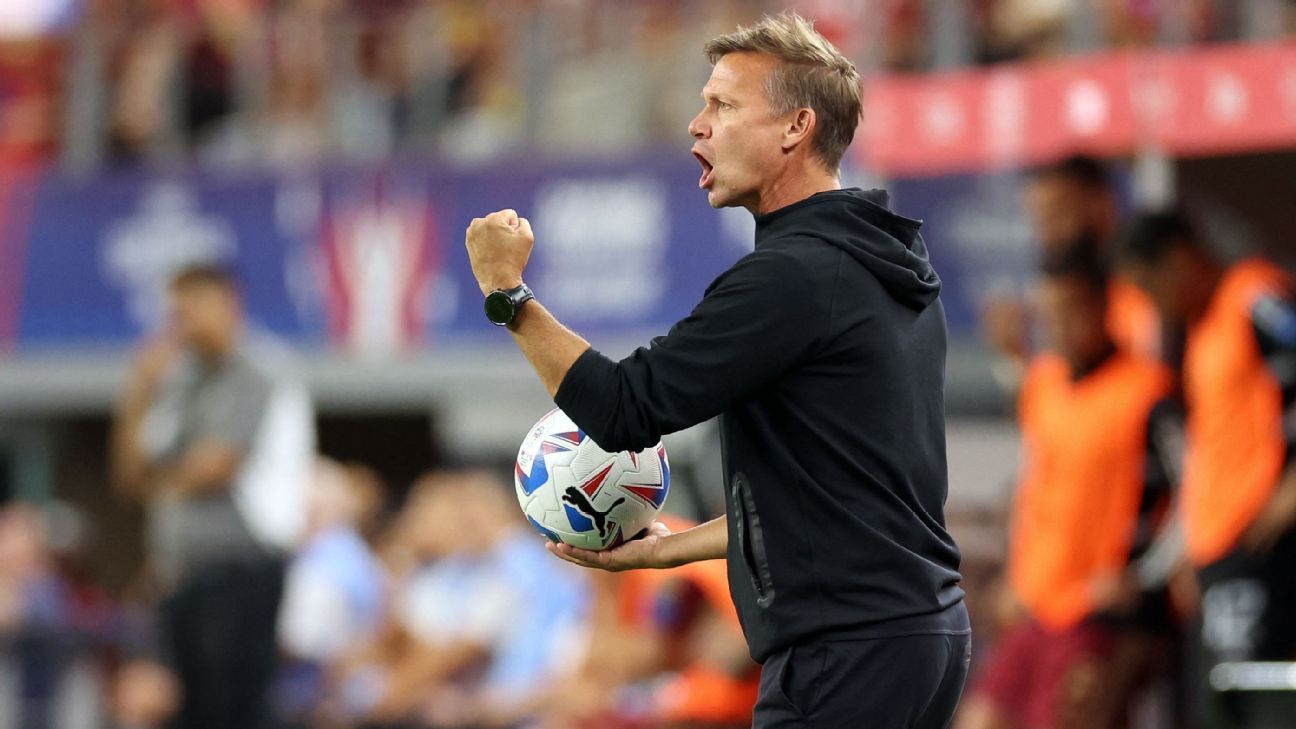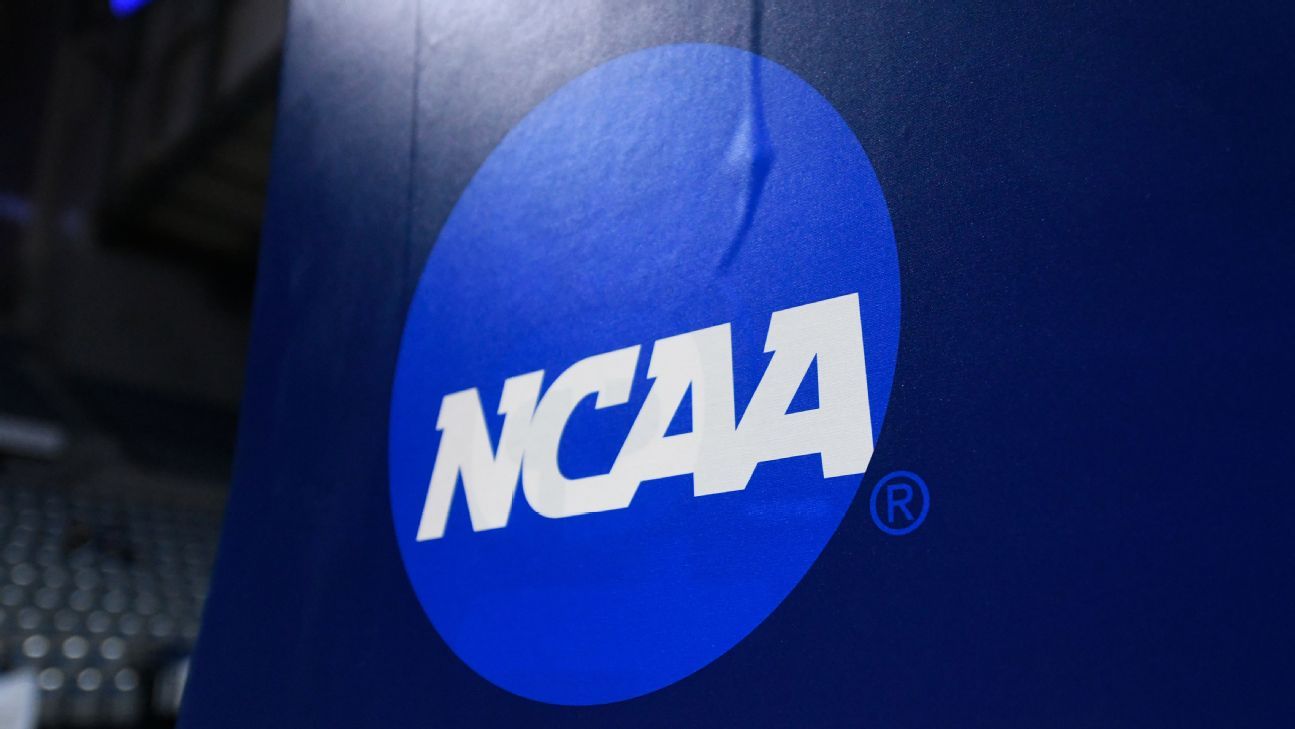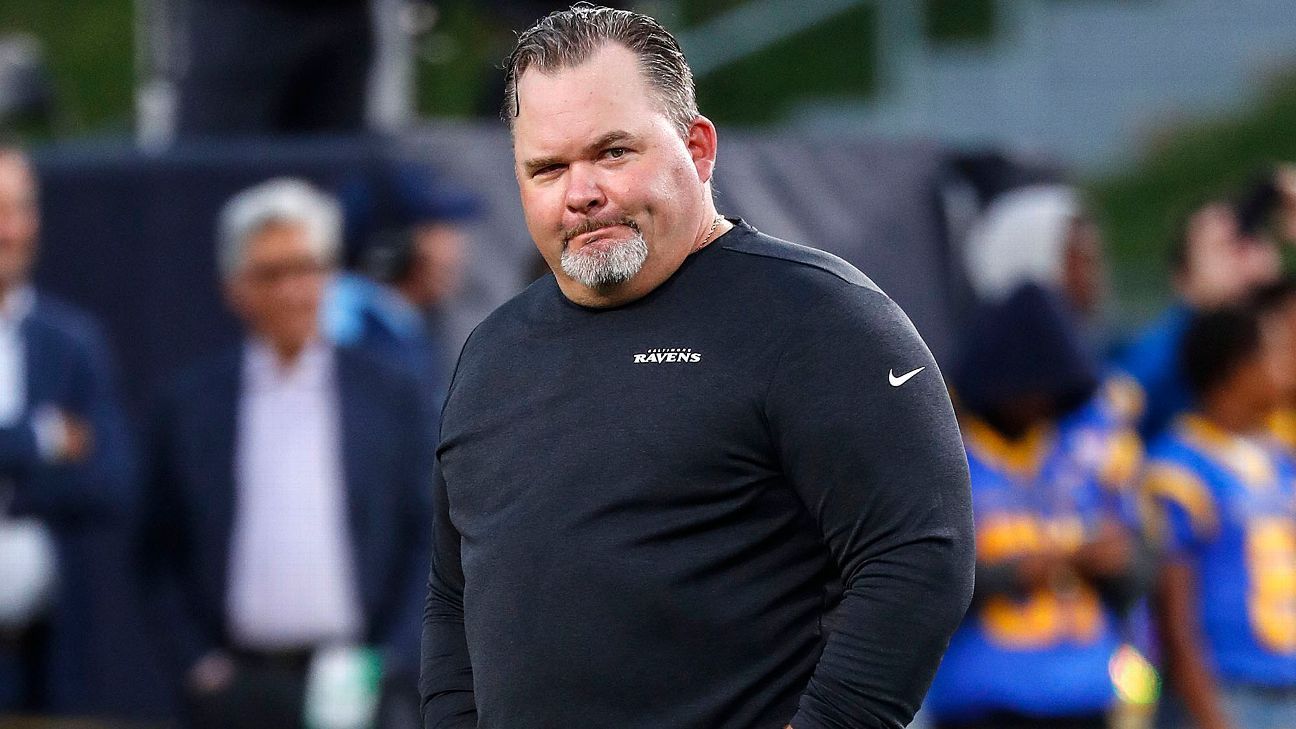It's good to be Jesse Marsch right now. Earlier this week, he had a chance to say a few things about the United States' performance, a year after he was denied the chance to coach his home country's national team. Then, in Arlington, Texas, on Friday night, he led his own team to the semifinals of the Copa America.
After a 1-1 draw in regulation time, Canada defeated Venezuela 4-3 on penalties, earning them a rematch against Argentina. They are the third CONCACAF team to advance to the semifinals in their Copa America debut, after Mexico in 1993 and Honduras in 2001.
Both Canada and Venezuela played this game as if they knew how important and rare the opportunity was. Both teams moved the ball with extreme verticality, getting it quickly from one end of the field to the other. Venezuela played as if there was a shot clock, attempting several long-range shots at the first opportunity; of their 16 shot attempts, only three were within 8 meters of the goal, and none were worth more than 0.2 xG.
Meanwhile, Canada continued to struggle throughout the tournament, creating decent chances but sending them sky-high. They attempted 16 shots worth 1.9 xG, but, as has been the case throughout the tournament, struggled to finish. However, Moïse Bombito, Ismaël Koné and stars Jonathan David and Alphonso Davies all scored their penalty kicks in the shootout and are moving forward because of that.
The 2024 Copa America has served as a test of form and a learning experience for ambitious North American teams. Mexico’s dismal performance, which scored one goal on its way to elimination in the group stage, was the latest step in a continuing slide for the once-brilliant Concacaf. The United States’ own group stage elimination reinforced the sense of stagnation after an encouraging showing at the 2022 World Cup.
For Canada and Marsch, hired only in May, this result has raised optimism about what the future might hold, but not a single second of this tournament has been easy. They were outshot 36-24 in the group stage, and it took until early in their fourth game of the tournament to score a goal while playing 11-on-11. Jacob Shaffelburg scored in the 13th minute to give Canada the lead over Venezuela on Friday night.
However, as the match passed the 60-minute mark, they were nearly undone by a combination of trickery and perfect counterattacks. Venezuelan goalkeeper Rafael Romo was caught out of position and physically prevented a quick throw-in that he could have taken advantage of; however, the action was not booked and, after a short delay, Venezuela needed just two touches to turn a loose ball deep in their area into the equalising goal.
Salomón Rondón caught Crépeau outside the area for a great equalizer 🤯 image.twitter.com/GWZU4njLnm
— FOX Soccer (@FOXSoccer) July 6, 2024
Salomón Rondón surprised goalkeeper Maxime Crépeau far from his own goal and scored with a chip from 39 meters.
The pace continued to swing back and forth and Venezuela was never punished for particularly physical play in the box (in that match, they were called for just seven fouls and no yellow cards). But Canada continued to create better scoring opportunities and eventually kept their cool to win on penalties.
The chaos probably didn’t bother Marsch much. The former RB Salzburg, RB Leipzig and Leeds United coach is known for his fast-paced style of play, and Canada’s two wins at this tournament came in games in which they had 104 (vs. Peru) and 117 (vs. Venezuela) possessions (the tournament average: 85 possessions per game). They now average 94 possessions, second in the tournament behind Venezuela, and their direct speed (how fast the ball moves vertically in a given sequence) of 2.1 meters per second is easily the highest.
Of course, this is a style that Marsch could be implementing right now with the U.S. men's national team. Last summer, when the U.S. decided to re-sign Gregg Berhalter, they passed on him for the job, and Marsch didn't hide his disappointment.
“I'm not going to go into details, but I was not treated very well in the process,” Marsch told CBS's “Call it What You Want” podcast. “So, whatever it is, that's in the past.” […] “It motivated me again to find the right people.”
Marsch struck a cross between candid and mischievous tone earlier this week when sharing his thoughts on the U.S.’s struggles at the Copa America. “Obviously, I’m paying attention to the U.S. men’s national team like I always do and, like you, I’m sad,” he told Fox. “I’m disappointed with the performances, the lack of discipline.”
On Friday night, his Canadian team also lacked discipline, but they did their job. And their reward is a rematch against Argentina.
Canada fell 2-0 to the world champions in the tournament’s opening match; Marsch tried to keep things under control with a rather conservative 4-4-2 formation, but Argentina nearly doubled their shot attempts (19 to 10) and nearly tripled their xG totals (3.0 to 1.2). David and Cyle Larin were limited to one shot each, and while it took Argentina until the 88th minute to officially put the game away with a second goal, the outcome was not in doubt. Argentina played its most vulnerable game of the tournament in the quarterfinals, needing penalties to pull off a win over Ecuador, but Canada still has a mountain to climb.
Any hope of pulling off an upset will require something Canada has been unable to offer all tournament: good finishing. So far this tournament, they have attempted 40 shots for a combined 5.9 xG but have scored just two goals. David and Larin have attempted 13 shots for a combined 2.5 xG but have scored just once, on David’s lightning counterattack against Peru, and the rest of the team has an even worse xG/goal ratio. They had several chances to shut out Venezuela before Rondon’s miracle goal. They will need significant improvement in this area because Argentina is likely to create better chances overall.
Still, it's been a great couple of weeks for Marsch and the Canadian national team. On their first try, they accomplished something Venezuela has only done once in 20 attempts: reaching the semifinals, and they didn't have to play their best to do it.
Marsch's team has adopted the style it wants to implement and, at worst, Canada will match the United States' best showing at the Copa America. No matter how “disappointed” he may be by his home country's recent performances, it probably won't keep him up at night right now.











